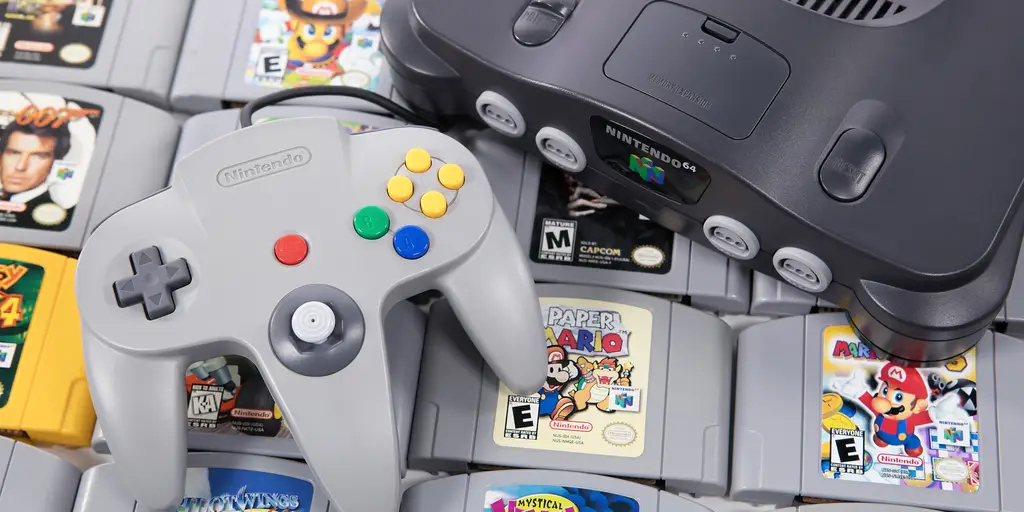Discover the latest project by Ninjalerts as Pizza Ninjas unveils a Nintendo 64 emulator inscribed on Bitcoin, leveraging Brotli Compression and Ordinals enhancements.
Unveiling Decipher's Hub for Art, Style, and Entertainment.
Fresh off their groundbreaking achievement of integrating a Super Nintendo Entertainment System (SNES) into the Bitcoin blockchain, the Ninjalerts team is back with another innovation. This time, they've introduced a Nintendo 64 (N64) emulator onto the network, as announced on Wednesday.
Similar to their previous endeavor, the N64 emulator is now a part of Ordinal Inscription 61,648,429, enabling users with compatible game files to enjoy N64 games directly in their web browsers.
"Our aim is to enable 4-player multiplayer gaming on the Bitcoin platform," explained Ninjalerts CEO Trevor Owens in a conversation with Decrypt.
"Excited to announce that Pizza Ninjas has successfully integrated a Nintendo 64 emulator on Bitcoin! 🟠🎮"
"Initially, we doubted the feasibility of this project, but thanks to the advancements like Brotli Compression on Ordinals,
integrating a larger system like N64 and its games has become a realistic possibility…" pic.twitter.com/XcEAAqR04A
— trevor.btc — b/acc (@TO) February 22, 2024
Thanks to the implementation of the Brotli lossless compression algorithm, developed by Google, and recent enhancements made to Ordinals, Ninjalerts has managed to reduce file sizes by approximately 80%. This reduction significantly diminishes the number of Bitcoin blocks required to integrate the N64 emulator.
"Before these advancements, we developed the SNES emulator," Owens recalled. "However, we speculated that integrating later systems might be prohibitively expensive for game preservation purposes."
"Take Goldeneye 64, for instance, with a file size of 12.6 MB," he elaborated. "The emulator binary itself is 6.4MB uncompressed, but with Brotli compression, it's reduced to just 1.4MB."
Despite these innovations, congestion on the Bitcoin network remains a point of concern among enthusiasts. In January, the Taproot Wizards inscribed the Quantum Cats collection on the Bitcoin blockchain—a collection of 3,333 items that cost $66,000 and consumed 10MB or ten blocks on the network.
In contrast, the N64 integration by the Pizza Ninjas project cost $5,000 at 25 sats per virtual byte (vbytes) considering the current network fees.
"Had we integrated the N64 emulator when we integrated the SNES, the cost would have been closer to $20,000 to $25,000, at a rate of 80 to 100 sats/vbyte," Owens remarked. He added that a compressed game file using Brotli might only require three blocks.
"If we can achieve a 75% compression rate, resulting in a 3.15MB file size, it would resemble the file size of an SNES game," Owens projected. "This could potentially fit into a single block with collaboration from a miner; otherwise, it could be divided into eight inscriptions, each under 400 kb."
Owens explained that one reason for focusing on the N64 for this Ordinals project is that it was the last major console to utilize cartridges before CDs became prevalent.
"We don't foresee venturing into consoles newer than N64 or even the Playstation 1 era," he stated. "These eras introduced DRM, placing them in a legal gray area."
DRM, short for Digital Rights Management, refers to technology aimed at controlling access to digital content, thereby preventing unauthorized copying and distribution.
Following the revelation of the SNES project, Owens disclosed that he was approached by individuals referencing the Dolphin Emulator, which was removed from Steam due to legal concerns.
"The crucial aspect of that case was that the system they launched circumvented the console's DRM for reverse engineering purposes," Owens clarified. "While we won't integrate any copyrighted games, we aspire to continue advancing this dialogue with archivists."

